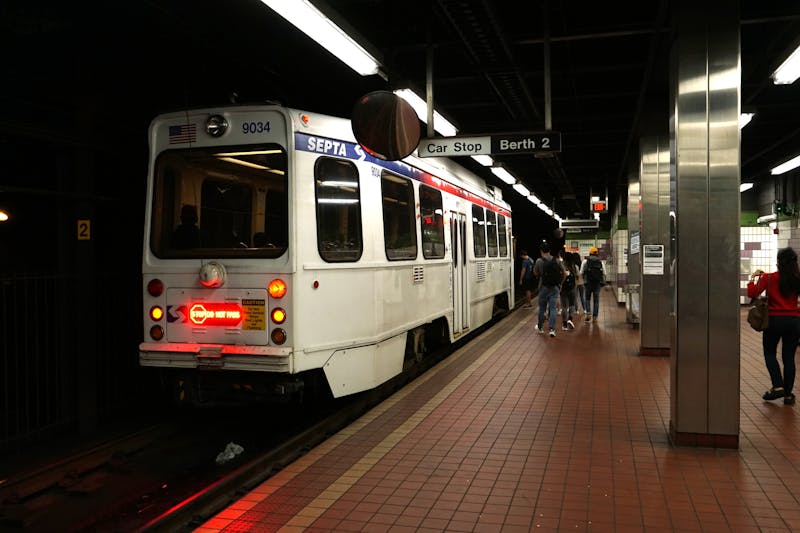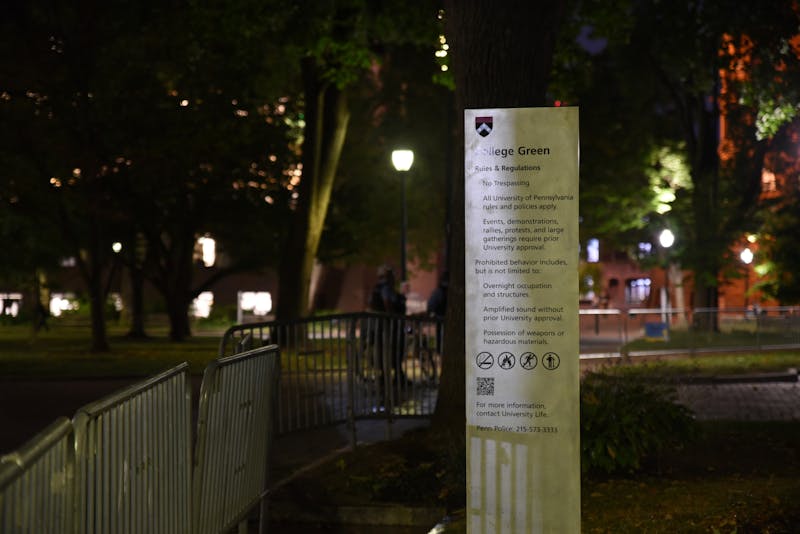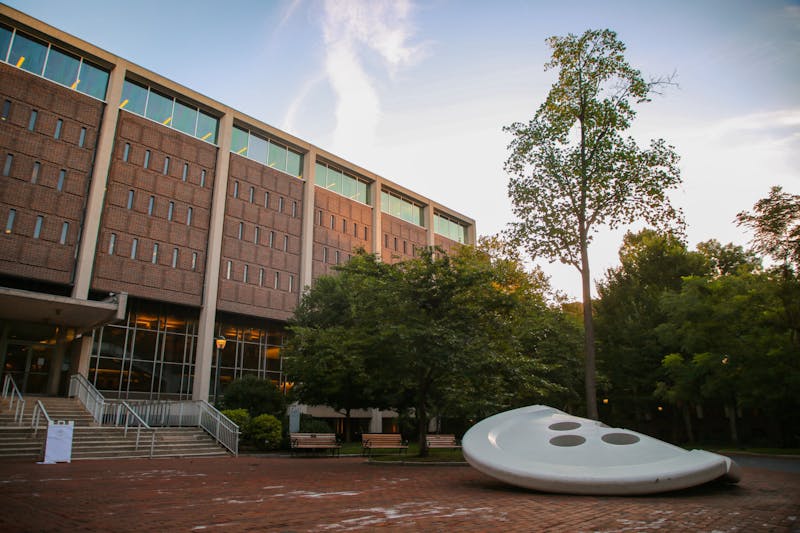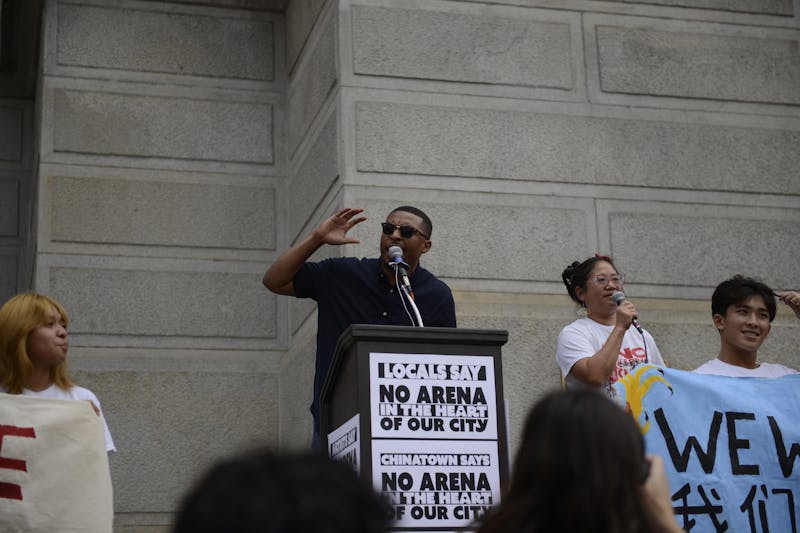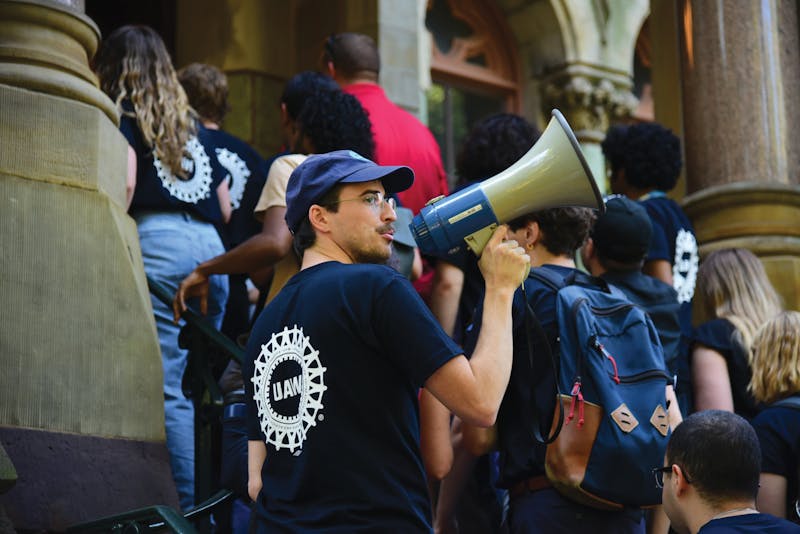
If SEPTA workers hit the picket line anytime soon, good luck getting anywhere! If union demands are not met, we can expect over 4,500 transit employees to go on strike by the end of the month. This will shut down the majority of bus, trolley, and metro lines across the city, completely disrupting the lives of Philadelphians. And that’s exactly the point.
In late October, Transport Workers Union Local 234 voted unanimously to authorize a strike against SEPTA as soon as their contracts expired on Nov. 7. At the time of writing this, bus and train operators are working without a contract as the union continues negotiations. They cite their top priority as safety, underscoring the increase in violence against SEPTA drivers since the pandemic. Drivers report being verbally attacked, spit on, and physically assaulted. This comes with a string of gun violence incidents on SEPTA buses, including the fatal shooting of bus operator Bernard Gribbin last October. Protected by nothing but a plastic sheet installed as a COVID-19 precaution, drivers are left vulnerable to both indirect and targeted violence.
Our unwavering support should lie with these workers as they request both essential safety precautions, such as bulletproof glass and higher wages corresponding to the ever-increasing cost of living. SEPTA bus operators make an average salary of $30,000 a year, lying right on the Philadelphia poverty line for a family of four. Thanks to the slashing of Pennsylvania Gov. Josh Shapiro’s proposed SEPTA budget by state legislators, the company claims it cannot afford to pay workers more. For the same reason, talks of raising SEPTA fares are heating up, and it’s likely that we’ll soon be spending more than $2 each way on our daily commutes.
This potential strike has been looming over the city for over a week, threatening the service of routes like the Market-Frankford Line that connect West Philadelphia to Center City. Updates on the SEPTA website and emails from the Netter Center for Community Partnerships have made us aware of the ramifications a strike could have on our day-to-day lives, especially for those commuting to work and school on public transit. Relief swept the city last Friday when it was announced that negotiations would continue, preventing the much-anticipated shutdown of our transit system.
While it is promising that talks between SEPTA and Local 234 have been productive enough to warrant extra negotiation days, there is no guarantee of progress. Reports claim that SEPTA has yet to budge on a wage increase for employees. If they continue to hold back, employees are well within their legal rights to walk out in protest.
Historically, though, this wasn’t always the case. Local 234’s ongoing negotiation process pays homage to a strong tradition of labor organizing in Philadelphia, much of which was considered illegal. In fact, the first labor union in the nation was born in this city in 1794, bringing together bootmakers looking to protect their wages. In the ensuing Philadelphia Cordwainers Trial of 1806, the unlawful status of labor unions was upheld in the name of removing constraints to industrialization. In other words, the city decided that protecting workers was bad for overall business. Brutal labor exploitation simply made the most sense for economic productivity.
Considering this history is essential in our response to today’s labor movement. While it is easy to be frustrated by this potential interruption — anyone with somewhere to be and parents who don’t pay for their Ubers would be — it is integral that we recognize the strike as an intentionally disruptive and long-fought-for action. Along with the first union, Philadelphia was also home to the first general strike in the country, resulting in widespread victories for workers across the city. The mass effect of a SEPTA strike will hopefully be the push the city needs to invest in public service workers and, with them, all Philadelphians.
The struggles of union workers and the city’s general population are forever intertwined. Firstly, 32.5% of union members are public service workers, meaning our society runs on their labor. The health and safety of the people who power our communities should absolutely be a top priority. In addition to that, organizations such as the Economic Policy Institute highlight the overall economic benefits of unions, including increased government revenue, reductions in wage inequality, and increased civic engagement. It will never be just union workers in this fight together. It is all of us who depend on someone else to sign our checks.
When it comes to fighting corporations, collective action and solidarity are our only hope to make sure workers are getting what they deserve. Unions remind us that the power truly does lie in the hands of the people, without whom businesses would not survive. We must refuse to settle for a society that views its workers as cogs in a machine rather than individuals. Meeting the demands of Local 234 is an essential step in honoring the roots of labor activism in Philadelphia and pushing toward a future of economic justice.
INGRID HOLMQUIST is a College sophomore studying urban studies from Silver Spring, Md. Her email address is ingridhh@sas.upenn.edu.
The Daily Pennsylvanian is an independent, student-run newspaper. Please consider making a donation to support the coverage that shapes the University. Your generosity ensures a future of strong journalism at Penn.
Donate







